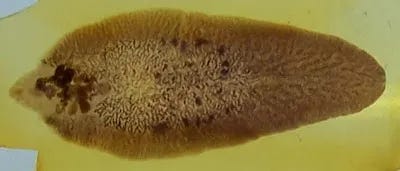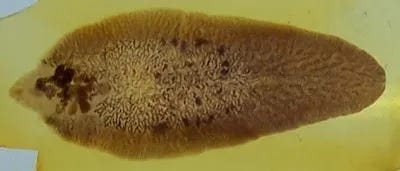On Sunday, March 16, the SEDES La Paz launched the Fascioliasis Campaign, a parasitic disease found in municipalities in areas with wetlands, aquatic plants, and contaminated water. It is transmitted to humans through an intermediate host found in the snail.
By departmental instruction of the Departmental Autonomous Government, under the leadership of M. Sc. Santos Quispe Quispe, the Departmental Health Service (SEDES) La Paz headed by Dr. Juan Carlos Camacho carried out a complete surveillance study in relation to this disease in the municipalities of Guaqui, Pucarani, Escoma, Tiahuanaco, Charazani, Batallas, Corocoro, Humanata and Santiago de Huata, where 16 cases were diagnosed in 2024.
“In 2025, two new cases have been reported, the first in a five-year-old girl from the municipality of Sorata and the second in a 75-year-old woman from the town of Carabuco. The minor required admission to intensive care because the disease affected her liver, causing abdominal dysfunction affecting all of her organs. Currently, both cases are out of danger,” reported Dr. Javier Mamani Acarapi, Head of the Epidemiology and Research Unit of SEDES La Paz.
The risk of this disease is immense for the population, since this parasite lodges in the bile ducts, compromising the liver and causing fascioliasis. It can also cause short stature, anemia, and even difficulty learning and memorizing.
"Under the directives of our Governor, Mr. Santos Quispe Quispe, we are prioritizing endemic municipalities for this parasitic disease. Fascioliasis has so far affected 20 municipalities in six Rural Health Networks, which means a sick population, including children and adults. Our mission is to carry out deworming in the affected municipalities," said Dr. Javier Mamani Acarapi, Head of the Epidemiology and Research Unit at SEDES La Paz.
As part of a deworming campaign, tablets will be available to the public at health centers. Health personnel will also visit homes wearing identification clothing and credentials. They will also carry Triclabendazole (TCZ) tablets, which will be given to the entire population between the ages of 5 and 60. Each tablet will be administered free of charge, based on each person's weight.
"Remember that the way to prevent it is to boil water and wash food properly. If sheep, cattle, and/or pigs contract this disease, their meat should be thoroughly cooked before eating it," said the head of the Epidemiology and Research Unit at SEDES La Paz.





